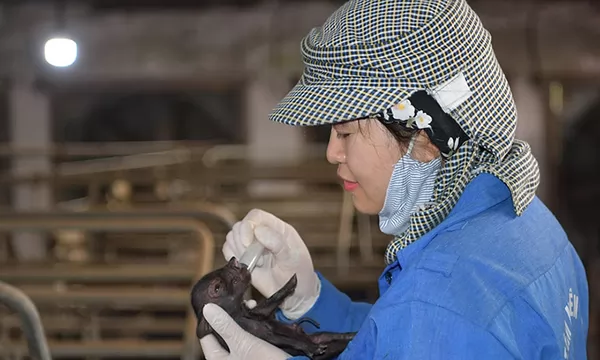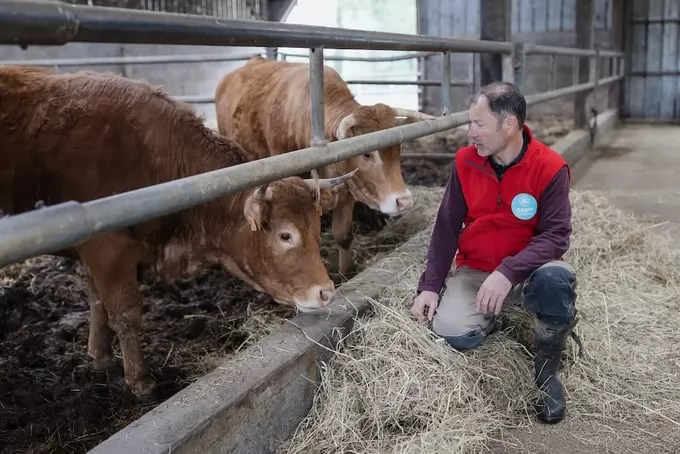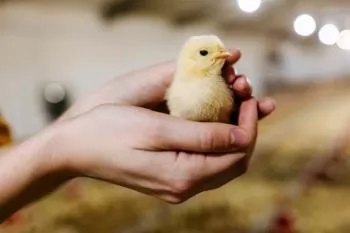Vietnam successfully clones endangered pig breed

A baby Vietnamese Pot-bellied pig is fed by an employee of the Thuy Phuong pig research center in Hanoi's Bac Tu Liem District, March 14, 2021. Photo by VnExpress/Van Giang.
For the first time, Vietnam has successfully cloned the endangered Vietnamese Pot-bellied pigs using a somatic cell cloning technique.
The National Institute of Animal Sciences under the Ministry of Agriculture and Rural Development announced Sunday that four baby Vietnamese pot-bellied pigs have been reproduced through a cloning technique involving somatic cells derived from ear tissues.
The Vietnamese pot-bellied pig is a traditional, domestic breed reared for meat. It is native to northern Vietnam, with their characteristic black and wrinkled skin. Though it is not considered to bring in high economic value, its meat is regarded to be of high quality. The FAO has classified the pig as an endangered breed.

Vietnamese Pot-bellied pigs on rice terraces in Sa Pa, Lao Cai Province, northern Vietnam. Photo by Viethavvh.
Pham Cong Thieu, head of the animal sciences institute, said the "birth" of the baby pigs was a technological leap for Vietnam in animal cloning.
"The achievement has opened up new research paths for applying animal cloning technologies in choosing and preserving animal breeds that are very rare or have big economic value," he said.
By Tat Dinh
Maybe you are interested

Europe's farmers are in revolt and the far right is trying to make hay
Farmers are mad about high costs and low prices, about the prospect of free trade deals, about the constraints of climate regulations, about what they say is a failure of political elites ...

Early nutrition research in poultry is speeding up
Shifting market dynamics and the noise around new legislation has propelled Trouw Nutrition's research around early life nutrition in poultry. Today, it continues to be a key area of research.

Marine aquaculture brings high profits to Kiên Giang farmers
KIÊN GIANG - Breeding marine fish in floating cages has offered high profits for farmers in Kiên Giang Province's coastal areas and islands.





